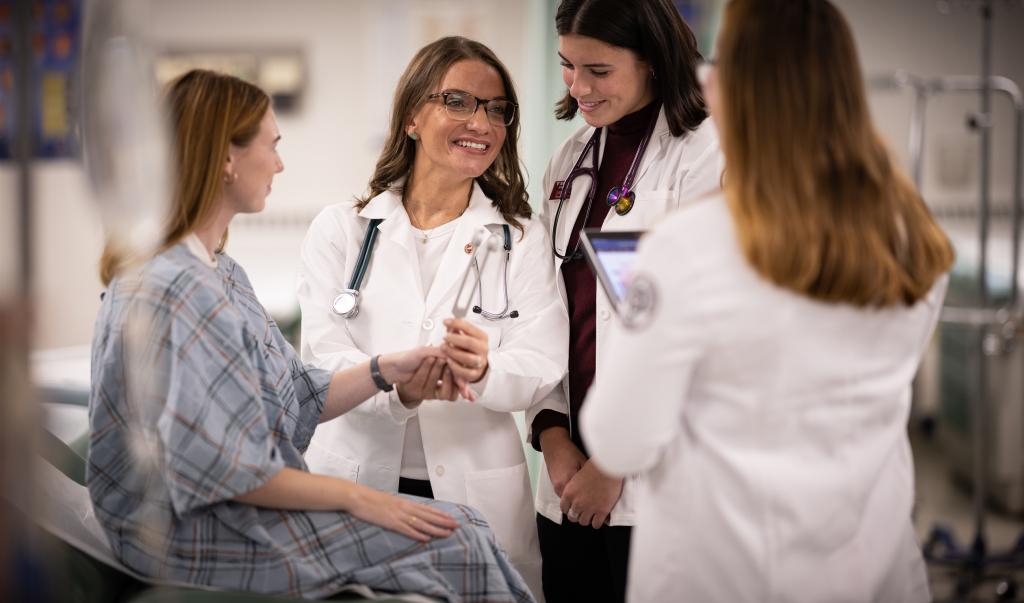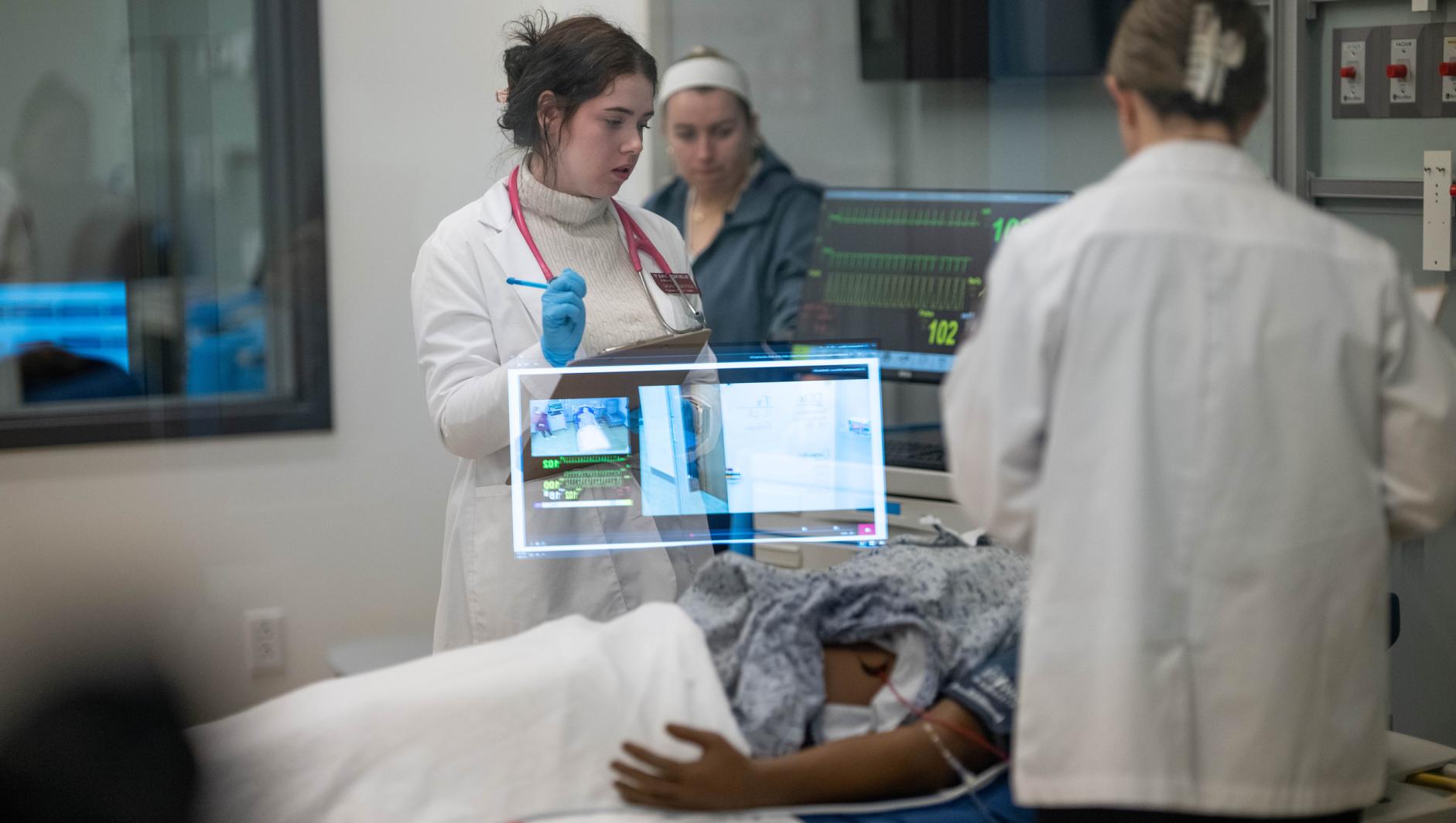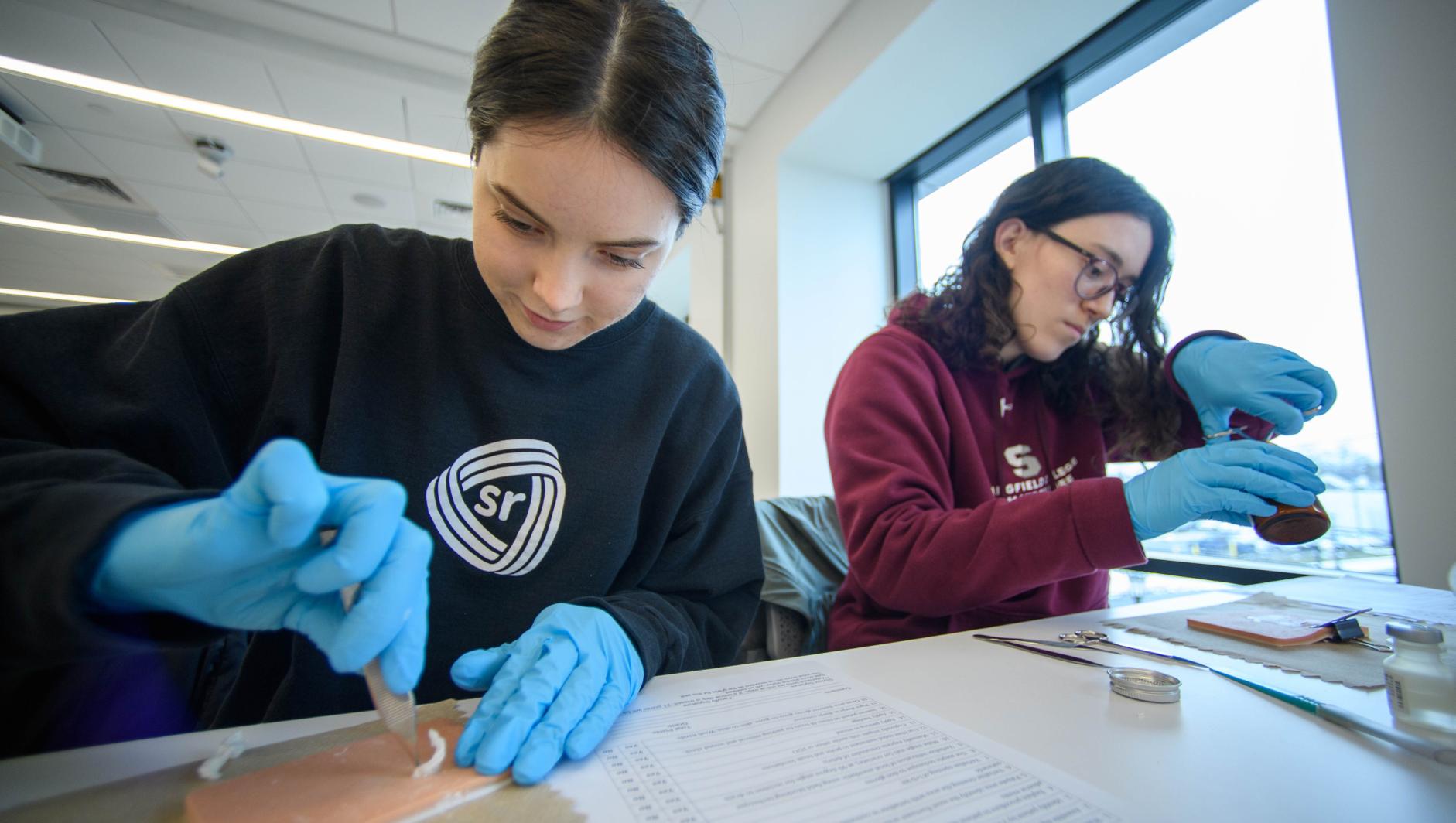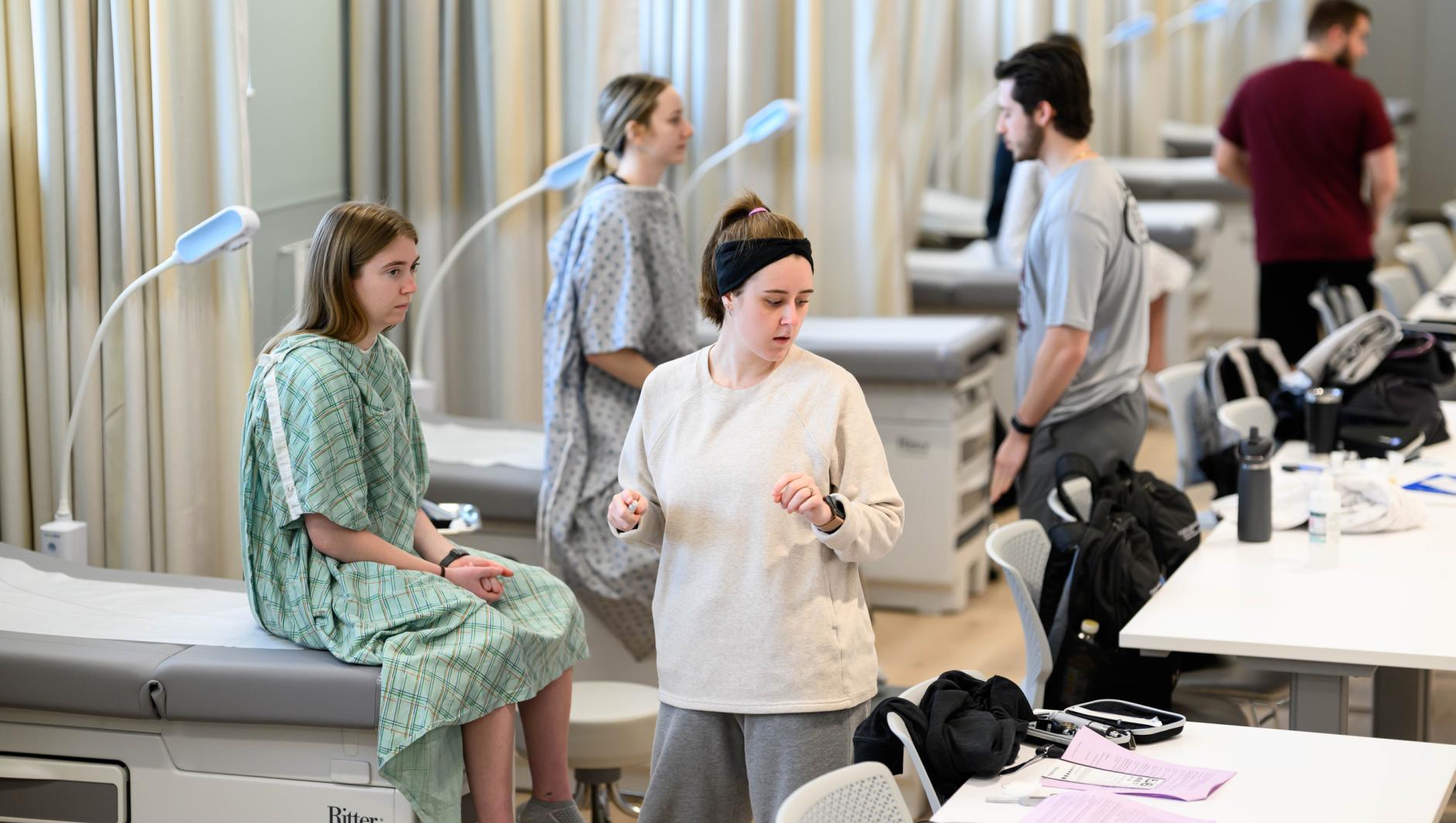Physician Assistant Studies
Combined Bachelor of Science and Master of Science
| About This Program | |
|---|---|
| Program Contact | |
|
Review our admissions requirements |
|
Curriculum and Delivery
|
|
| Graduate Success and Careers | |
| Paying for Your Education | |
|
Looking for a graduate program?
Earn a Master of Science in Physician Assistant Studies in 27 months |
|
|
Upcoming Events
Check back soon for upcoming events! |
|

Provide Compassionate and Effective Health Care.
The Springfield College Physician Assistant Studies (PA) program is renowned for its unique blend of academic rigor and hands-on experience in this field. The program educates physician assistants eligible for employment in a wide variety of medical settings and specialties. A hallmark feature of the program is its expedited nature, allowing students who qualify for the Master of Science in Physician Assistant Studies program to graduate in 6 years rather than 7 (typical at most institutions), saving a year of tuition and enabling entry into a salaried position a year earlier.
You will enter Springfield College as a first-year student. Those who qualify will earn a Bachelor of Science in Health Science: Pre-PA Studies and complete the Master of Science in Physician Assistant Studies in 6 years. The professional phase of the program begins in January of the senior year. The Bachelor of Science in Health Science/Pre-PA is awarded in May of the fourth year. The Master of Science degree is awarded at the conclusion of the PA program.
To successfully matriculate from the pre professional phase to the professional, master’s phase of the program, you must meet all program standards and participate in an interview. What sets our program apart is all qualified Pre-PA students are guaranteed an interview with the graduate admissions committee during their sophomore year. If offered a seat in the graduate professional phase of the program, students are eligible to begin the graduate phase in the spring of their senior year. A maximum of 30 seats are reserved for students through this track.
Any student who is not offered a seat in the graduate professional phase of the program will remain at Springfield College and reapply through our graduate admissions process at the next cycle.








